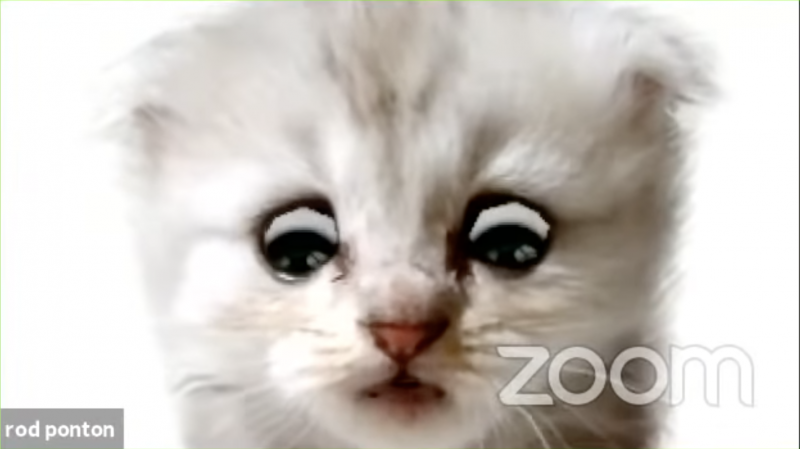Trying to retain some kind of separation between home and working life has been a consistent challenge for everyone working from home over the last 11 months. But when there is no physical separation between home and the office, potential humiliation is just one absent thought away. Like the young woman who accidentally went to the bathroom in front of her Zoom class. Or this guy, who forgot to hang up from a work meeting and wandered around in his boxer shorts in front of his co-workers. (Their response was, and remains, internet gold.)
Let’s not forget that Zoom was also the conduit for the downfall of Jeffrey Toobin. The once-celebrated author, lawyer and CNN analyst was seen masturbating mid-Zoom meeting by staff from both The New Yorker and WNYC radio. Toobin called the incident “an embarrassingly stupid mistake.” KTLA called it “one of the fastest and furthest falls one can possibly imagine.” In a year of surreal incidents on Zoom, they don’t come any stranger—or deeply inappropriate—than Toobin’s.
Back at the start of shelter in place, there was something fun and novel about Zoom. I remember the very first KQED Arts & Culture Zoom meeting vividly. (That was back when I still bothered to put on work clothes and makeup for such occasions.) I remember the sense of appreciation I had for still being able to see the faces of my coworkers. And it gave me a small sense that we were triumphing over dire circumstances. I even took a screenshot for posterity because at the time, Zoom seemed like a temporary solution we might soon forget.
Now, almost a year later, Zoom feels more like a permanent fixture we’ll never be without. And that, like so much of our mid-pandemic professional lives, is still going to take some getting used to.


